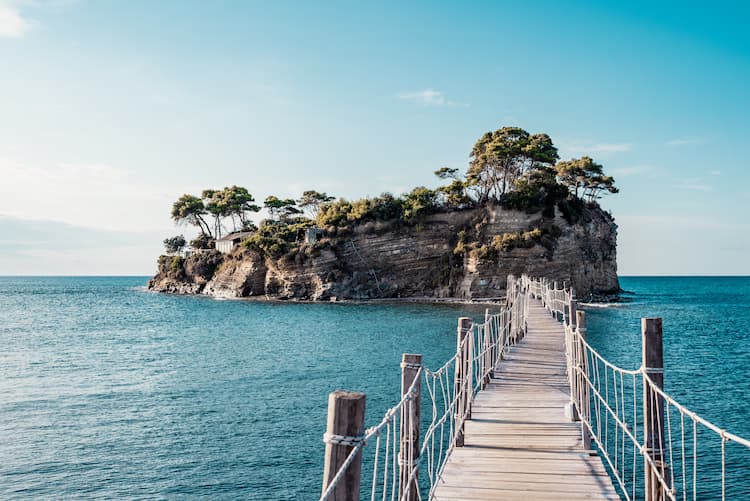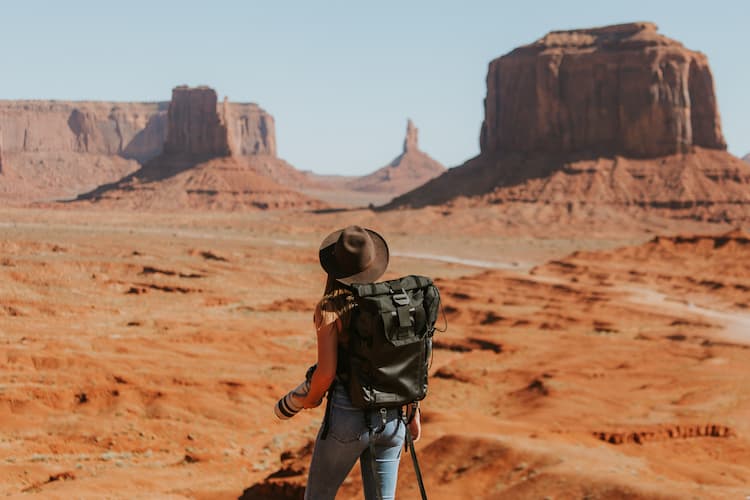
We are reader-supported and may earn a commission on purchases made through links in this article.
Going overseas can be a fun and exciting experience for you and your family – but being away from home invites dangers and hazards that you might not be aware of.
Staying safe is vitally important at all times – and we’ve gathered some tips to help you stay as safe as possible on your next overseas getaway, so your dream trip doesn’t turn into a nightmare.
Best Tips & Tools to Plan Your Trip
Research Your Destination
Although it may seem tedious to research your travel destination, it may be one of the most pleasurable parts of planning your trip. Read blogs, see TripAdvisor ratings, watch YouTube videos, ask friends who have been before, or even ask ex-pats you may know or work with about what it’s really like.
They can alert you to what local customs are, what scams are about, and which parts of your destination you should avoid such as high crime areas.

Keep a Low Profile
Though it may be hard in some countries, one piece of advice is to try and keep a low profile and blend in. Don’t draw attention to yourself. If the locals wear long pants and garb in weather that would normally have you grabbing a shorts and t-shirt, do as the locals do as much as possible.
Try to learn some of the local language so you can be culturally aware – and deter some unscrupulous locals mistaking you for an easy scam mark.
Research Health Risks and Get Vaccinations
Health risks can differ depending on where you go. Knowing the dangers helps you decide which immunizations and preventative healthcare steps to use. To enter and leave your destination, you might need to meet specific health conditions.
For instance, some nations need documentation of your yellow fever vaccination. Before leaving for your location, you should consult a doctor or travel clinic. They should also advise you of any activities you should avoid so you aren’t aggravating any pre-existing conditions.
Water and Alcohol Don’t Mix
Do you know what one of the biggest causes of death is for overseas travellers? Drowning. Having a couple of beers then going for a swim might sound like a great time – but it can impair your judgement and motor skills.
You could end up drifting into a rip or current and be unable to get back out; which is hard enough when you’re sober. If you’re planning on getting a bit tipsy, stay away from the water.
Personal Safety Is Property Safety
Most bag thefts occur when the owner is not looking. On buses while you’re asleep, behind tables, or even from the individual themselves, thieves steal baggage. In more dire circumstances, someone would even conduct a drive-by on a bike or scooter! Property safety means personal safety.
Even cheap locks on bags and valuables are enough of a deterrent from would be thieves. Use whatever means necessary when your bags are not on your person to ensure they won’t get stolen – such as strap attached to your leg or arm when setting things down.

Electronic Safety Is Vital
Scams and hackers are everywhere – and you need to ensure your cell phones and laptops are secured as much as possible. That means using VPN (Virtual Private Networks) when connecting to unknown or untrusted wi-fi, using eSIMs so your normal SIM can’t be stolen and duplicated (it’s a thing), and checking ATMs and other places for skimmers or spoofers.
Remember having one backup is having zero – make sure you have backups of backups as well as vital documents on secure cloud servers.
Make Sure You Have Travel Insurance
You shouldn’t leave home without some kind of comprehensive travel insurance. Without it, you or your family may experience financial hardship if something goes wrong. No matter who you are, where you are going, or what you are doing, get insurance.
With few caveats, some travel insurance policies are all-inclusive and will cover “anything.” Other versions might only cover your health and emergency medical care, valuables in your possession, baggage, airline cancellations, and delays, or a mix of these.
Ensure you have the necessary coverage – some policies may be expensive and excessive, while others are cheap and could leave you in the lurch. Explore options like no-receipt claims, apps to make instant claims, and other helpful services that could get you out of trouble.
Not Sure About the Food? Don’t Eat It
We all want to experience the culinary delights of the nations we visit. But if we’re not feeling 100% about a local dish or if it looks like it’s been cooked in a dirty kitchen, walk away. Don’t drink water from wells or taps either just in case it’s got bacteria in it.

Check Travel Advisories
The State Department offers travel advisories to different countries which indicate the level of risk in each. If the department urges you to not travel, exercise caution, or reconsider travel to a certain destination – don’t go.
Either way, you should also register your movements at your country’s Smart Traveller program, which includes your arrival and departure dates so local embassies can contact you during an emergency or national disaster.
Above All: Be Prepared
Knowledge is power when it comes to travelling – so read up as much as possible, be prepared with first aid kits, keep your cash out of sight, and think ahead before taking any risks. That way you can have fun abroad while staying safe.
Author Bio: Adrian Edlington
Inspire your next adventure with our articles below:
- Mauritius: The Paradise You Didn’t Know You Were Missing - July 18, 2025
- Slow Down and Savor: Why Africa’s Most Elegant Train Journey Should Be Your Next Adventure - July 18, 2025
- How to Plan Your Dream African Safari - July 18, 2025

